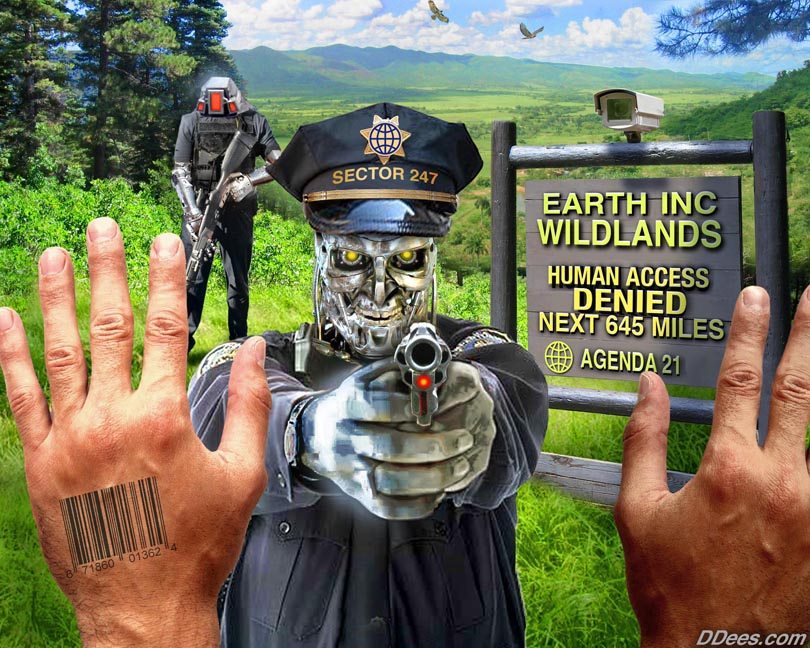It's getting stuffy here
"Water and wildlife in the nation's public forests are slowly being poisoned by insecticides and other chemicals used in illegal marijuana operations, say forest police and researchers. They warn that the potential environmental damage could last generations.
Many of the grows are the work of highly organized drug cartels that take advantage of the forests' thick canopy to help hide their operations. Some sites go undetected for years.
"The true crime here is the fact that they're killing off basically America's public lands, killing off the wildlife, killing off our water," says Kevin Mayer, a U.S. Forest Service law enforcement assistant special agent in charge. "This is stuff that, you know, it's not gonna repair itself."
Now, an unlikely coalition in California — including environmentalists, law enforcement agents, politicians, wildlife ecologists and representatives of the legal cannabis industry — have joined forces to try to reduce these illegal operations and the environmental threat they pose.
...Wengert points to a tree where she found about a gallon of concentrated carbofuran, an insecticide banned by the Environmental Protection Agency for all legal purposes. Carbofuran is produced in the U.S. by Pennsylvania-based FMC Corp, which exports the product to Mexico, India and other nations. The European Union, Canada and Brazil have full bans on carbofuran.
"It is incredibly toxic," Wengert says. "A quarter teaspoon could kill a 600-pound black bear. So obviously just a tiny amount can kill a human. It remains in an ecosystem for a long period of time."
"We have detected [carbofuran] in the soil, in cannabis plants, in native vegetation, the water, the infrastructure. You name it, we have detected it," Wengert says. "It's horrible."
Trespass pot growing has been a problem for many years — from hippies to cartels. But what's new, Wengert says, is that cartel growers are using more poisons and spreading them indiscriminately on the pot, the soil, all around.
...an increasing body of research, including her own, shows alarming levels of pesticide and insecticide contamination of the entire wildlife food web in the state's national forests.
Combating such grows can be tough. Forest Service police in California average 220 grow site raids and eradication operations yearly, says spokesman Paul Wade.
...Officials estimate they find fewer than half. The agency also does not have any reclamation or hazardous materials teams to deal with this expanding problem. In addition to wildlife, there's concern about the risks to hikers and other park users."
source: https://www.npr.org/2019/11/12/7731...-poisoning-wildlife-and-water?t=1611646238007
"Water and wildlife in the nation's public forests are slowly being poisoned by insecticides and other chemicals used in illegal marijuana operations, say forest police and researchers. They warn that the potential environmental damage could last generations.
Many of the grows are the work of highly organized drug cartels that take advantage of the forests' thick canopy to help hide their operations. Some sites go undetected for years.
"The true crime here is the fact that they're killing off basically America's public lands, killing off the wildlife, killing off our water," says Kevin Mayer, a U.S. Forest Service law enforcement assistant special agent in charge. "This is stuff that, you know, it's not gonna repair itself."
Now, an unlikely coalition in California — including environmentalists, law enforcement agents, politicians, wildlife ecologists and representatives of the legal cannabis industry — have joined forces to try to reduce these illegal operations and the environmental threat they pose.
...Wengert points to a tree where she found about a gallon of concentrated carbofuran, an insecticide banned by the Environmental Protection Agency for all legal purposes. Carbofuran is produced in the U.S. by Pennsylvania-based FMC Corp, which exports the product to Mexico, India and other nations. The European Union, Canada and Brazil have full bans on carbofuran.
"It is incredibly toxic," Wengert says. "A quarter teaspoon could kill a 600-pound black bear. So obviously just a tiny amount can kill a human. It remains in an ecosystem for a long period of time."
"We have detected [carbofuran] in the soil, in cannabis plants, in native vegetation, the water, the infrastructure. You name it, we have detected it," Wengert says. "It's horrible."
Trespass pot growing has been a problem for many years — from hippies to cartels. But what's new, Wengert says, is that cartel growers are using more poisons and spreading them indiscriminately on the pot, the soil, all around.
...an increasing body of research, including her own, shows alarming levels of pesticide and insecticide contamination of the entire wildlife food web in the state's national forests.
Combating such grows can be tough. Forest Service police in California average 220 grow site raids and eradication operations yearly, says spokesman Paul Wade.
...Officials estimate they find fewer than half. The agency also does not have any reclamation or hazardous materials teams to deal with this expanding problem. In addition to wildlife, there's concern about the risks to hikers and other park users."
source: https://www.npr.org/2019/11/12/7731...-poisoning-wildlife-and-water?t=1611646238007


 ) i don't use chemical fertilizers because i'm not trying to make a living at this. cowshit & good dirt is quite enough...
) i don't use chemical fertilizers because i'm not trying to make a living at this. cowshit & good dirt is quite enough... had dumped all sorts of shit JUST where I had planted my little ones! That´s another shit thing about living in the city. Never tried that sort of grow ever again.
had dumped all sorts of shit JUST where I had planted my little ones! That´s another shit thing about living in the city. Never tried that sort of grow ever again. 
